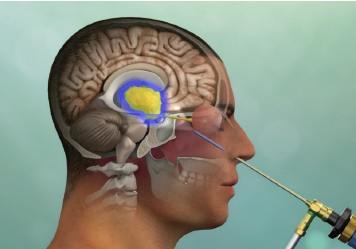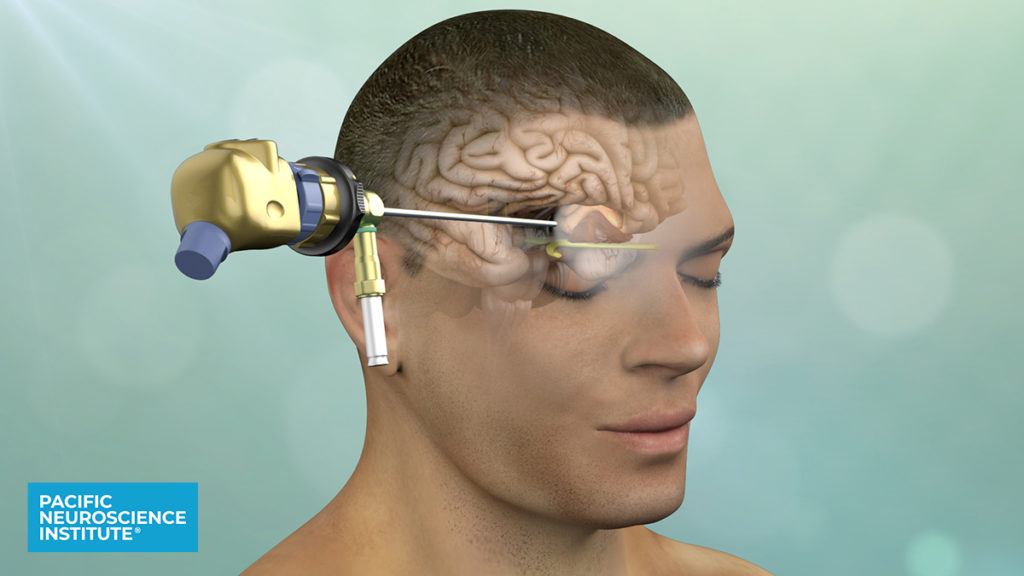

Meningioma Surgery in Older Patients Has High Rate of Success
by Guest Author
Neurosurgeons at Pacific Neuroscience Institute are among the world’s leaders in the minimally invasive removal of a type of benign brain tumor called a meningioma. In October 2020, a group of surgeons led by PNI cofounder Daniel F. Kelly, MD, published a paper describing excellent outcomes using minimally invasive surgery for meningiomas in patients 65 and older.
The paper, published in Neurosurgery Focus, describes a study of 291 patients of various ages treated with either minimally invasive surgery, conventional surgical approaches or nonsurgical management. The minimally invasive approaches included endonasal (reaching the tumor through nasal cavity) and supraorbital (making a small incision through the eyebrow).

When compared by age, the study showed that minimally invasive surgery resulted in excellent outcomes in people ages 65 and older when the patients were carefully selected. The rate of successful removal of the tumor was similar for minimally invasive surgery and conventional surgery. Overall, hospital readmission was necessary in only 4% of the patients 65 and up.
The study is important because meningiomas are the most common type of primary brain tumor, and half occur in people who are 65 and older. Previous research has questioned whether elderly patients with meningiomas should undergo surgery.

“In our experience, for both young and older patients, use of smaller incisions, more focused craniotomies and less expansive brain exposure not only promotes a greater likelihood of operative site healing and excellent cosmesis but also is associated with less postoperative pain and a greater willingness by patients to mobilize and leave the hospital,” the authors wrote.
In a similar study of older patients, Dr. Kelly and his colleagues found that carefully selected patients ages 65 and older can undergo endoscopic endonasal removal of pituitary adenomas, the third most common primary brain tumor. That study, published in the journal Pituitary, found excellent short-term outcomes including high resection rates, low complication rates and short length of stay for elderly patients treated with endoscopic surgery.
About Dr. Daniel Kelly

Dr. Daniel Kelly, a board-certified neurosurgeon, is the Director and one of the founders of the Pacific Neuroscience Institute, Director of the Pacific Brain Tumor Center and Pacific Pituitary Disorders Center, and is Professor of Neurosurgery at Saint John’s Cancer Institute at Providence Saint John’s Health Center. Considered to be one of the top neurosurgeons in the US, he is a multiple recipient of the Patients’ Choice Award, and has been awarded the Southern California Super Doctors distinction 15 years in a row.
Related links
- Meningioma surgery outcomes in older adults reference article
- The many manifestations of meningioma
- Meningioma videos
- Pacific Brain Tumor Center
- Pacific Pituitary Disorders Center
- Brain tumor expert team at PNI
Brain tumor clinics
- PNI – Santa Monica | 310-582-7450
- PNI – South Bay / Torrance | 424-212-5361
Adapted from original article which appears in the Winter 2020/21 issue of Saint John’s Magazine.
Last updated: July 2nd, 2021